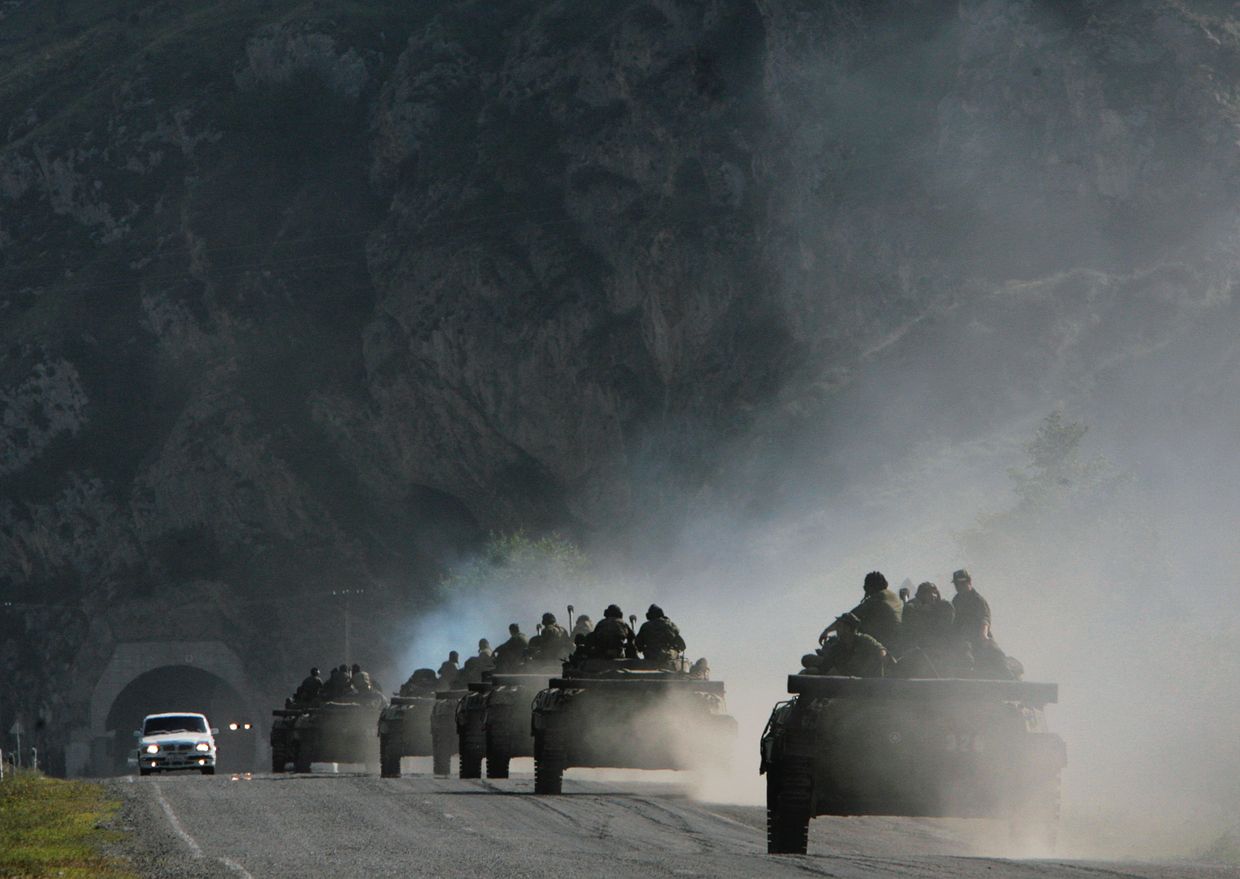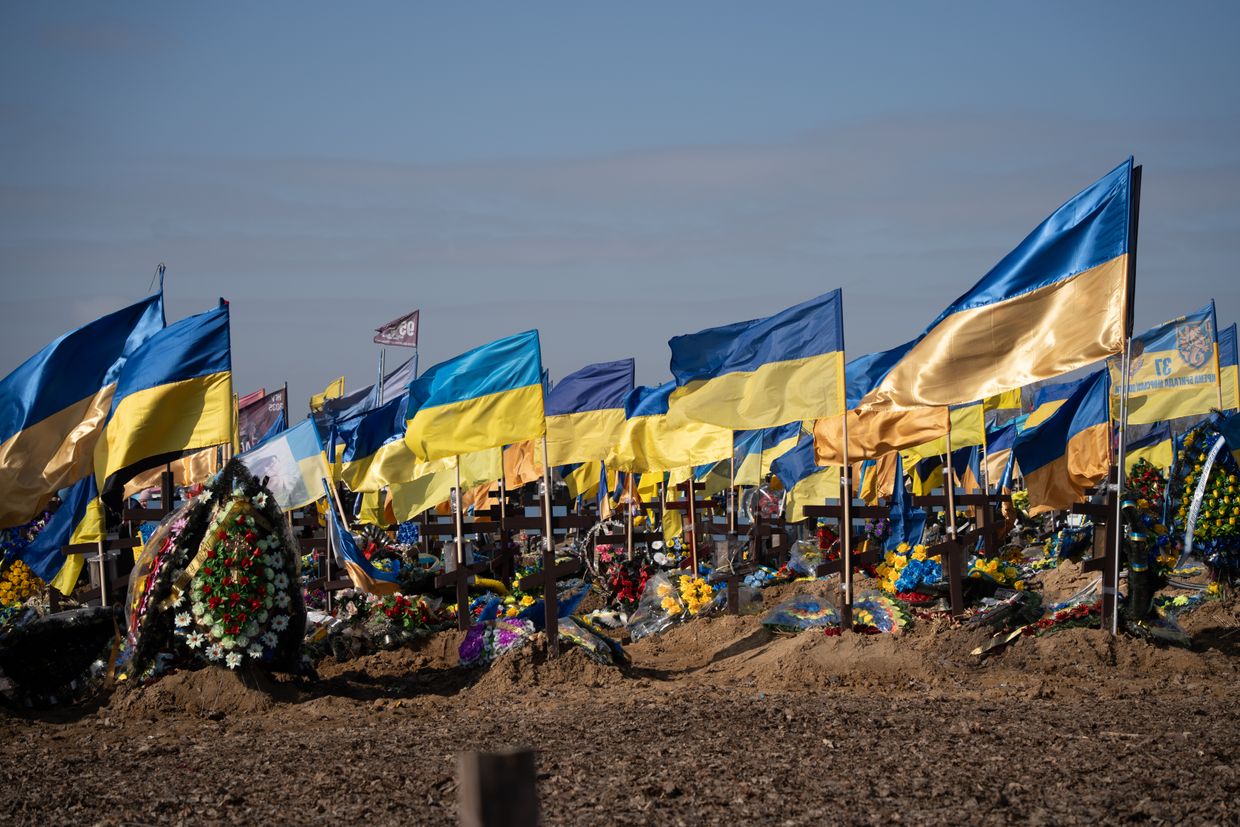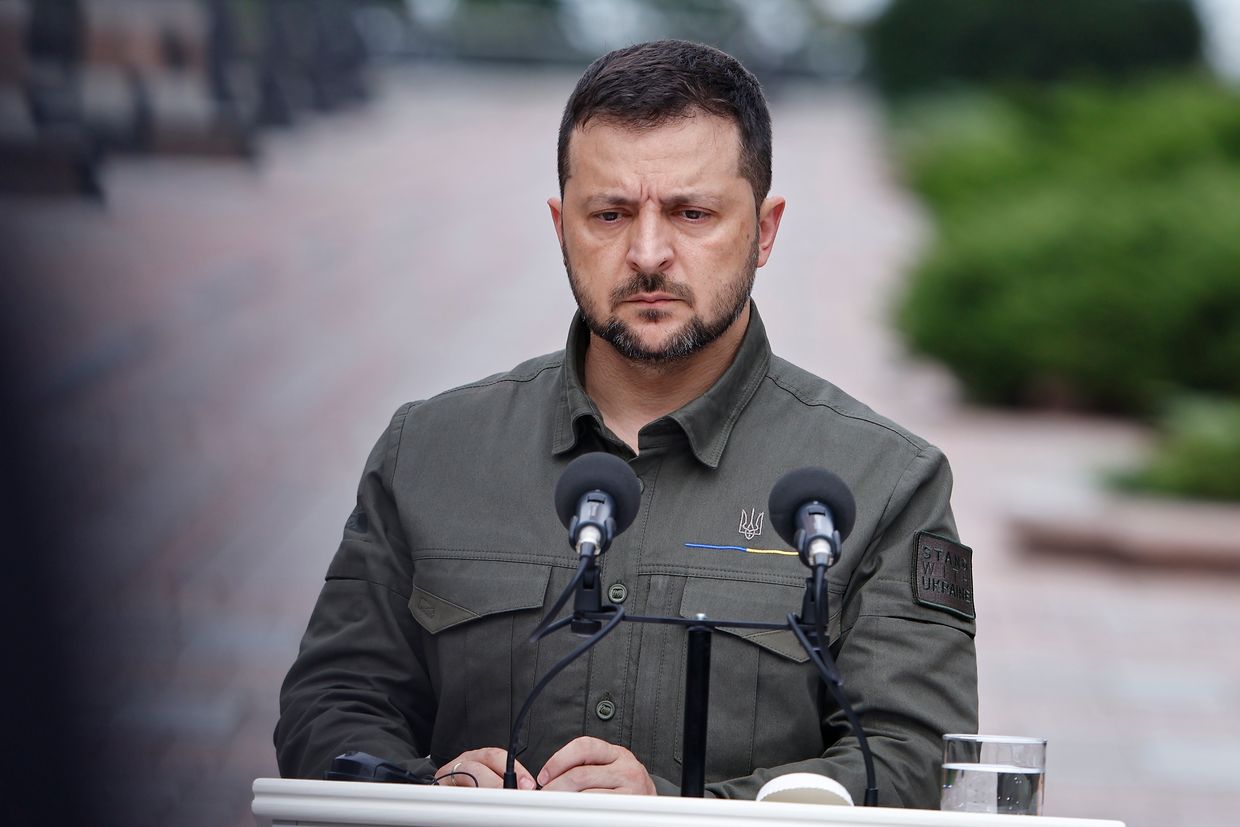The visit marks Merz’s first trip to Ukraine, and the first time all four leaders have travelled there together.
A notice about the airspace closure was published on the U.S. Defense Department's NOTAM (Notice to Airmen) website on May 10, as cited by Ukrainian defense news outlet Militarnyi.
"As in the past, it is now for Russia to show its willingness to achieve peace," the EU's statement reads.
Kremlin spokesperson Dmitry Peskov rejected the idea of a 30-day ceasefire between Russia and Ukraine, claiming in an interview with ABC News on May 10 that it would be "an advantage" for Ukraine.
"Our involvement in the war was justifiable, and this belongs to our sovereign rights," North Korean dictator Kim Jong Un said. "I regard this as part of the sacred mission we must execute for our brothers and comrades-in-arms."
The number includes 1,310 casualties that Russian forces suffered over the past day.
"We have a plan B and a plan C. But our focus is plan A, the essence of which is to get everyone's support" for Ukraine's accession, EU foreign policy chief Kaja Kallas said.
"(T)he presence at the Victory Parade of a country that bombs cities, hospitals, and daycares, and which has caused the deaths and injuries of over a million people over three years, is a shame," Polish Prime Minister Donald Tusk said.
"According to the participants of the performances, their goal is to remind the civilized world of the barbaric actions of Moscow, which for many years and decades has systematically violated international law," a source in Ukraine’s military intelligence agency (HUR) told the Kyiv Independent.
"I have great hope that an agreement for a ceasefire in Ukraine will be reached this weekend," German Chancellor Friedrich Merz said on May 9, shortly before traveling to Kyiv alongside the leaders of France, Poland, and the U.K.
U.K. Prime Minister Keir Starmer, French President Emmanuel Macron, German Chancellor Friedrich Merz, and Polish Prime Minister Donald Tusk will arrive in Kyiv early on May 10.
The United States embassy in Kyiv on May 9 issued a warning that Russia could launch "a potentially significant" attack in the coming days, despite Putin's self-declared Victory Day "truce."
The sanctioned oil tankers have transported over $24 billion in cargo since 2024, according to Downing Street. The U.K. has now sanctioned more shadow fleet vessels than any other country.
Russia may find opportunity to launch large-scale war on Europe within 5 years, Danish intelligence warns

Russia may find the opportunity to launch a large-scale war on Europe within five years, if Moscow "perceives NATO as militarily weakened or politically divided," an unclassified intelligence assessment from the Danish Defense Intelligence Service (DDIS) warned.
"Russia perceives itself as being in conflict with the West and is preparing for a war against NATO. While no decision to initiate such a war has been made, Russia is building the capacity to make that choice if deemed necessary," the report, published on Feb. 9, warned.
The latest intelligence assessment comes amid a series of increasingly dire warnings from Western leaders and defense officials about the threat emanating from Russia and Europe's current lack of preparedness.
The DDIS in its report noted that fracturing among alliance members could present an opportunity for Moscow to capitalize, particularly if the United States is unwilling to protect its European allies.
U.S. President Donald Trump sparked international outrage in February 2024 when he said he would urge Russia to do "whatever the hell they want" to NATO member countries failing to meet defense spending criteria, in a declaration indicating his disregard for the alliance's collective defense principle.
Since being inaugurated, Trump has raised the ire of NATO allies by not ruling out using military force to gain control of Greenland, an autonomous region of Denmark, as well as using economic coercion to force Canada to become a state.

The DDIS report assessed that Russia may be able to wage war with a neighboring country within six month if it is able to reallocate military resources from Ukraine in the event of a frozen conflict or the end of the war. The report also concluded that Moscow poses a regional threat to Baltic states within two years, and a large-scale war with Europe in five years, presuming the U.S. does not intervene.
The report acknowledges that the evolution of the Ukraine war will likely dictate Russia's future intention, adding that "it is unlikely that Russia could sustain both the war in Ukraine and a simultaneous war with NATO."
The report also does not account for an increase in NATO's military capabilities to match that of Moscow.
On Dec. 12, the Financial Times reported that European NATO foreign ministers began discussing a plan to gradually increase the alliance’s defense spending target from 2% of their GDP to 3% by 2030.
Incoming U.S. President Donald Trump called for an even more radical increase, up to 5% of GDP.

Most Popular

After 3 years of full-scale war in Ukraine, Europe announces plan to ban all Russian gas imports

Ukraine, Europe's ceasefire proposal includes US security guarantees, no recognition of Crimea, Reuters reports

Journalist Roshchyna's body missing organs after Russian captivity, investigation says

After Russia's deadly attack on Kyiv, Vance reposts denunciation of Zelensky

Ukrainian sea drone downs Russian fighter jet in 'world-first' strike, intelligence says
Editors' Picks

How medics of Ukraine’s 3rd Assault Brigade deal with horrors of drone warfare

As Russia trains abducted children for war, Ukraine fights uphill battle to bring them home

'I just hate the Russians' — Kyiv district recovers from drone strike as ceasefire remains elusive



